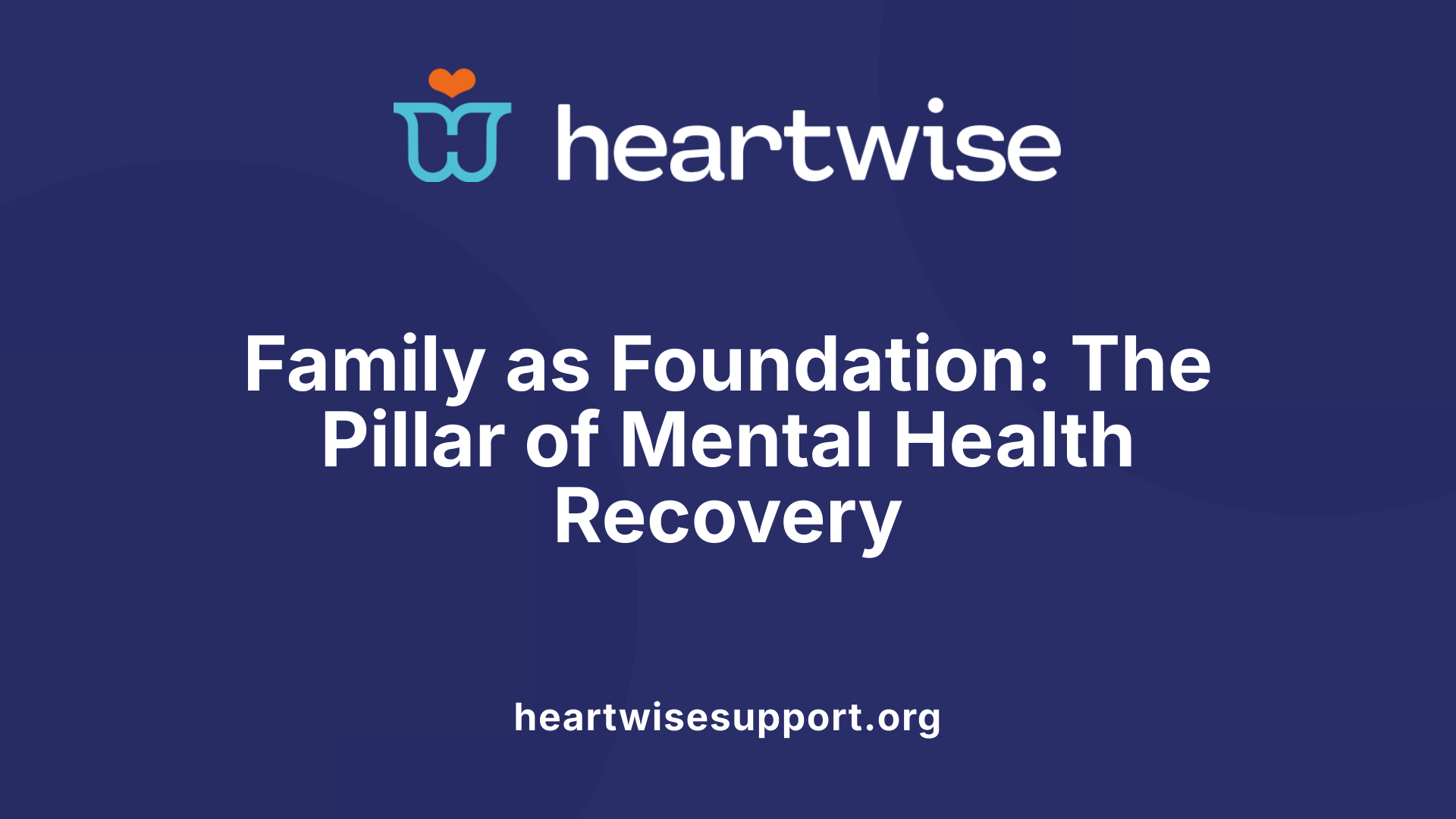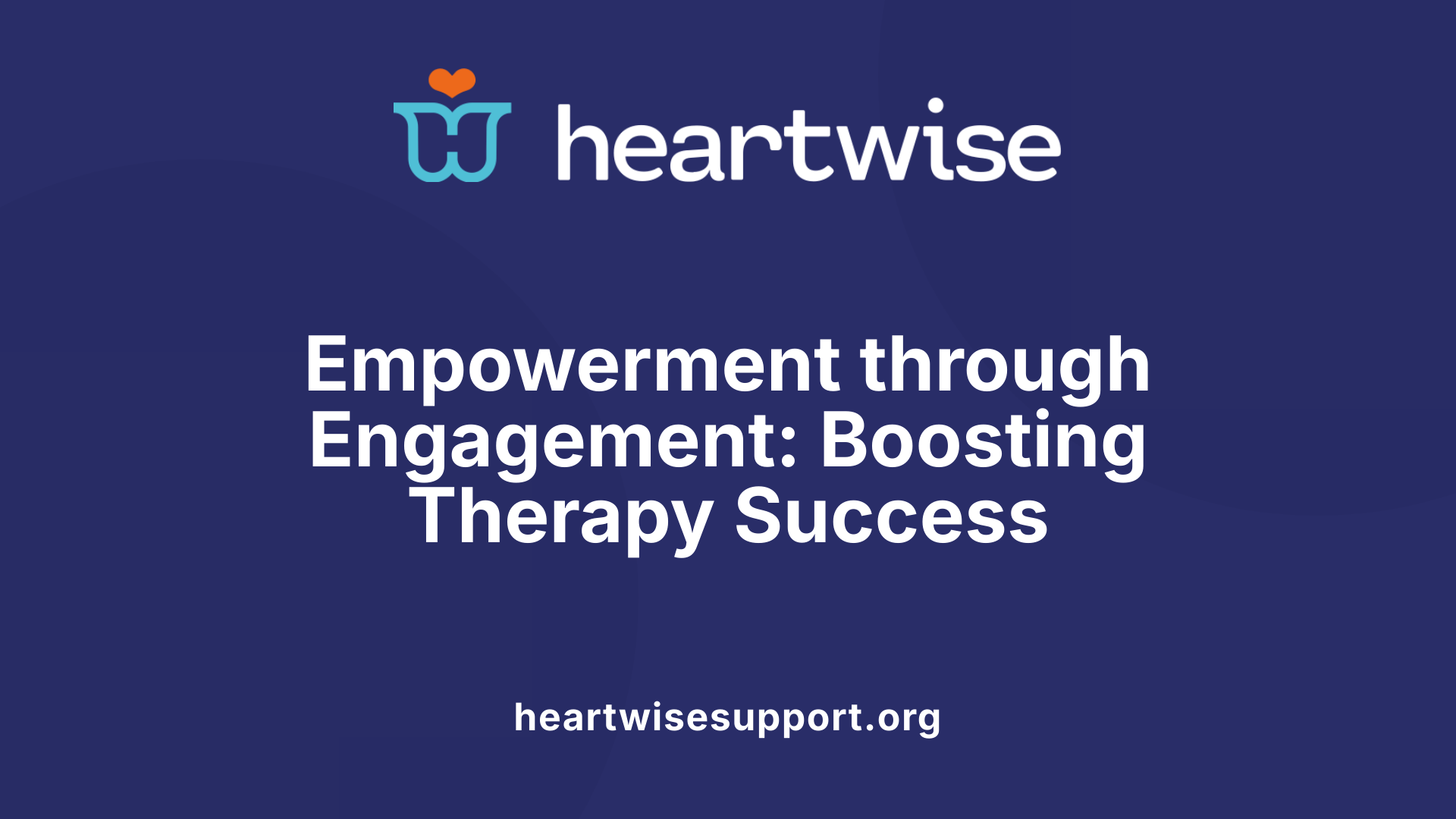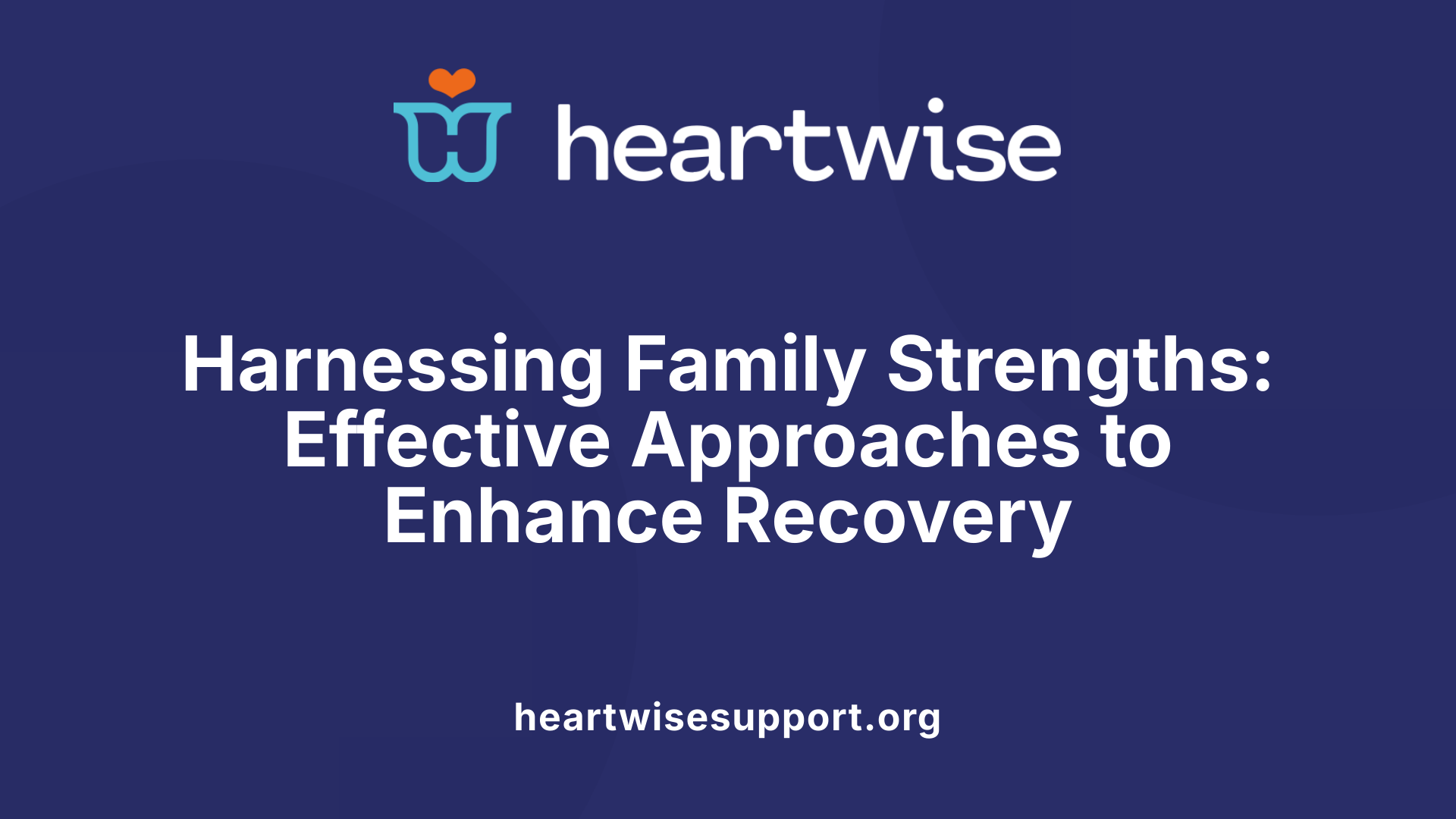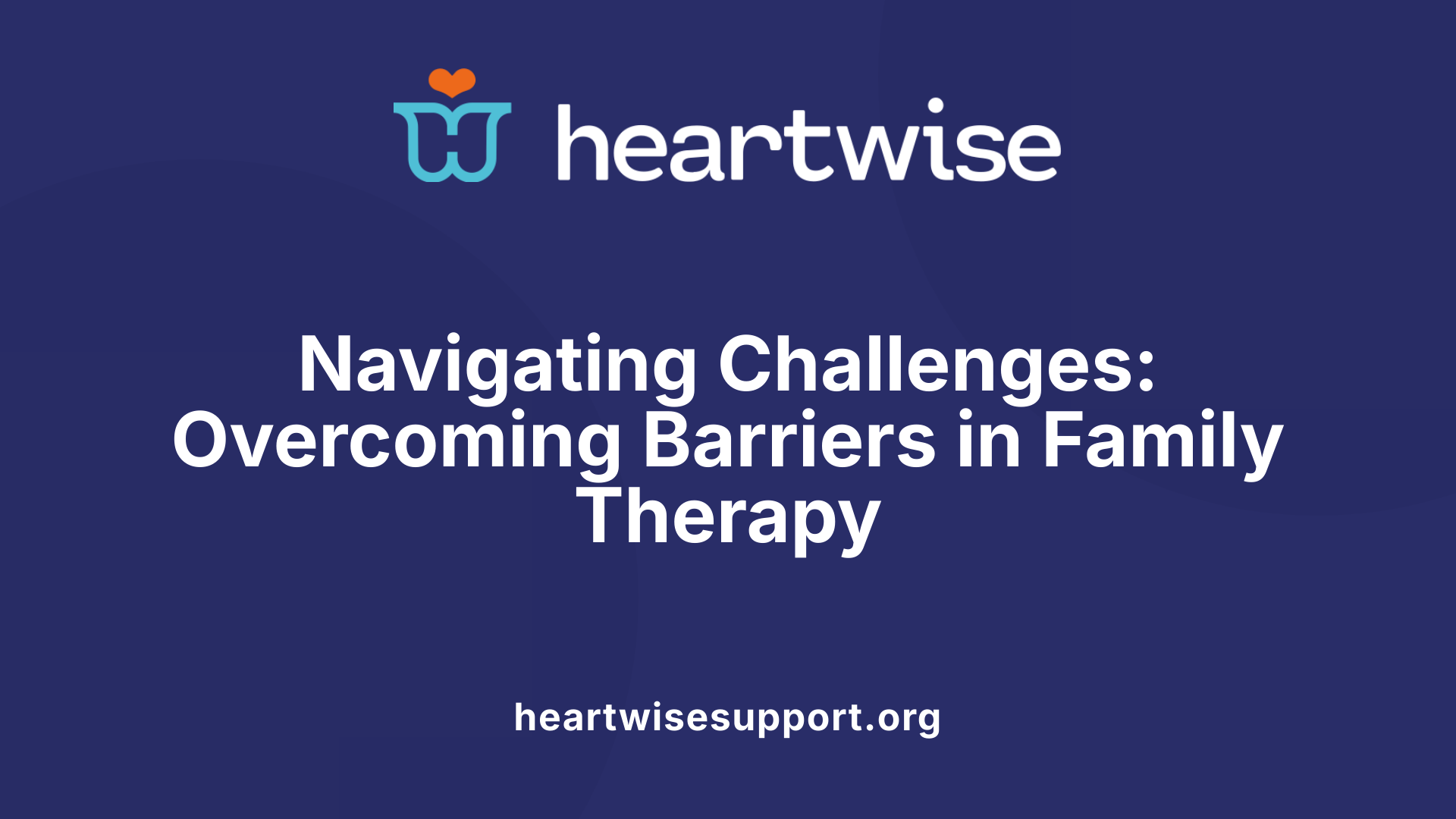Understanding the Impact of Family Engagement in Therapy
Family support is a cornerstone of successful therapy, significantly influencing mental health recovery and treatment efficacy. As a vital component, family involvement fosters improved communication, emotional reinforcement, and a nurturing environment that sustains progress. This article explores the depth and breadth of family support's role in therapy success, examining its effects on treatment outcomes, methodologies, and everyday family dynamics.
The Significance of Family Support in Mental Health Recovery

What is the role of family support in mental health recovery and treatment success?
Family involvement is fundamental to successful mental health treatment. It provides emotional, practical, and informational support that fosters feelings of hope, boosts self-esteem, and creates a sense of belonging. When families actively participate in therapy, they help establish a nurturing environment conducive to recovery.
Research consistently shows that strong family support correlates with better health outcomes. Patients with engaged family members tend to have lower rates of hospitalization and relapse, and they are more likely to adhere to treatment plans. Families facilitate open communication, offering encouragement and participating in decision-making processes alongside mental health professionals.
Family members also serve as primary sources of belief and motivation. Their support helps maintain stability even during tough times, reinforcing resilience and coping skills. In addition, families strengthen overall recovery by providing a supportive community, which contributes to long-term mental health improvements.
In essence, family support acts as a pillar for recovery. It not only boosts the individual’s ability to manage symptoms but also creates a network of care that promotes sustained wellness. Engaging family members throughout treatment elevates the chances of successful outcomes, making them an integral part of mental health recovery strategies.
Enhancing Therapy Outcomes Through Family Engagement

How does family involvement influence the outcomes of therapy?
Family participation plays a crucial role in improving the effectiveness of therapy sessions for youths and young adults. When families are actively involved, patients tend to attend more sessions and stay engaged in treatment longer. Data shows that patients with at least one family therapy session are significantly more likely to complete their treatment—about 83.2%, compared to just 59.2% for those without family involvement.
Each additional family session attended can increase the likelihood of treatment completion by approximately 1.4 times. This consistent engagement is vital, as it reinforces therapeutic progress and helps address underlying relational issues that may impact mental health or behavioral conditions.
Family involvement also enhances communication, emotional support, and problem-solving within the household. These factors create a more supportive environment conducive to recovery. Furthermore, understanding family dynamics enables therapists to tailor interventions effectively, resulting in better clinical outcomes.
Research points out that younger patients and those who identify as heterosexual are more likely to participate in family therapy, emphasizing demographic influencesthat may guide treatment planning. Overall, by incorporating families into therapy, clinicians can significantly boost engagement, improve treatment retention, and foster lasting positive changes.
Benefits of Family Participation in Therapy Sessions
What are the benefits of family participation in therapy?
Family involvement in therapy offers significant advantages for mental health treatment and relationship development. It enhances communication within the family unit, helping members express their feelings openly and listen actively. This strengthened communication fosters deeper emotional bonds and greater understanding among family members.
Participating in therapy sessions also addresses dysfunctional patterns and interaction issues. Families can recognize and modify unhealthy communication styles, power imbalances, or conflict cycles, leading to healthier interactions. Developing effective problem-solving skills allows families to handle crises, trauma, or major life changes with resilience and mutual support.
Research shows that active family participation improves treatment outcomes. It has been linked to longer engagement in therapy, higher session attendance, and increased likelihood of completing treatment. Families involved in therapy are better equipped with coping tools and strategies that aid in managing depression, substance use, behavioral disorders, and other mental health challenges.
Family therapy is especially impactful for children and adolescents, where family dynamics significantly influence emotional and behavioral health. Overall, involving family members creates a supportive environment, enhances understanding, and promotes lasting emotional well-being. This collaborative effort helps build stronger, more resilient family relationships.
Strategies for Supporting Family Involvement in Therapy
 Encouraging family members to participate actively in therapy sessions and providing education about mental health conditions are foundational steps. When families understand the nature of mental health issues, they become more equipped to offer meaningful support and reinforce therapeutic gains outside of sessions.
Encouraging family members to participate actively in therapy sessions and providing education about mental health conditions are foundational steps. When families understand the nature of mental health issues, they become more equipped to offer meaningful support and reinforce therapeutic gains outside of sessions.
Developing open communication channels within the family setting is crucial. This can involve creating regular opportunities for honest conversations, listening actively without judgment, and using respectful language. Such practices build trust, reduce misunderstandings, and foster a supportive atmosphere.
Assigning specific responsibilities to family members helps distribute support efforts and clarifies roles within the recovery process. For example, family members can help manage medication routines, monitor triggers, or assist with daily coping strategies. Setting clear expectations and boundaries is also important to ensure respectful interactions and reduce conflicts.
Emphasizing empathy and patience is essential, especially when dealing with conflicts or emotional difficulties. Family members should practice active listening, validate each other's feelings, and express understanding, which strengthens relationships and provides a safe space for recovery.
By combining these approaches, families can create an environment that supports mental health treatment effectively. This collective effort not only improves individual outcomes but also promotes healthier, more resilient family dynamics.
| Strategy | Description | Goal |
|---|---|---|
| Encourage attendance and educate | Motivate family members to attend therapy sessions and learn about conditions | Increase support and understanding |
| Develop communication channels | Foster honest, respectful dialogues within the family | Enhance trust and clarity |
| Assign responsibilities and emphasize empathy | Distribute support tasks and practice compassionate listening | Promote accountability and emotional safety |
Involving family actively in the therapy process benefits everyone. It enables better understanding, improves communication, and creates a cohesive support network vital for sustained mental health improvement.
The Role of Family Dynamics in Therapy Efficacy
How do family dynamics influence the effectiveness of therapy?
Family dynamics play a crucial role in determining the success of therapeutic interventions, especially in outpatient and family-centered treatments. A supportive family environment characterized by open communication, emotional support, and effective problem-solving fosters better engagement and lasting change. Conversely, dysfunctional patterns such as conflict, poor communication, or emotional detachment can obstruct progress.
Research highlights that families with positive interaction patterns create a foundation for effective therapy. When family members actively participate, understand each other's struggles, and provide encouragement, it enhances treatment adherence and outcomes. For example, involving family in therapy sessions has been associated with longer treatment engagement, higher completion rates, and improved clinical results. Each additional family session attended increases the likelihood of treatment success approximately 1.4 times.
Family therapy aims to target these underlying dynamics. Focused on improving communication, reducing conflicts, and strengthening relationships, these approaches help address the root causes that may contribute to mental health or behavioral issues. Interventions such as systemic or structural family therapy work directly with family roles, rules, and interaction patterns to promote healthier, more resilient relationships.
Understanding family dynamics within treatment also provides clinicians with context—helping tailor interventions that respect family values and resolve tensions. As a result, therapy becomes a supportive environment where emotional bonds are reinforced, conflicts managed constructively, and behavioral habits are positively influenced. Overall, engaging the family and addressing these core dynamics increases the likelihood of successful long-term outcomes, greater emotional stability, and improved daily functioning.
Family Therapy: Approaches and Contribution to Treatment Success

What is family therapy, and how does it contribute to treatment success?
Family therapy is a specialized form of psychotherapy that emphasizes the importance of family relationships, communication, and resolving conflicts within the family unit. It views the family as a system where each member's behaviors and emotions are interconnected.
This therapeutic approach helps families develop healthier interactions, improve understanding, and establish supportive environments. By addressing dysfunctional patterns, such as poor communication or unresolved conflicts, family therapy creates a foundation for individuals to recover and grow.
Research supports the effectiveness of family therapy in various mental health issues. It has been shown to significantly improve emotional and physical health outcomes, especially when fighting conditions like depression, addiction, or adolescent behavioral problems. Moreover, involving family members often increases engagement and retention in treatment programs.
Family therapy enables families to better understand mental health conditions, develop new coping skills, and strengthen relationships. This holistic approach not only addresses individual symptoms but also promotes long-term stability and recovery. Overall, incorporating family therapy into treatment plans fosters a healing environment that benefits the entire family and enhances ongoing success.
Addressing Criticisms of Family Therapy
 While family therapy is widely recognized for its positive impact on treatment engagement and outcomes, it is important to acknowledge some criticisms and considerations.
While family therapy is widely recognized for its positive impact on treatment engagement and outcomes, it is important to acknowledge some criticisms and considerations.
One common concern involves its effectiveness when family conflicts are deeply rooted or highly dysfunctional. In such cases, family therapy may lead to increased tensions or fail to produce immediate change. For example, unresolved conflicts or negative communication patterns can hinder progress, making it difficult for families to cooperate during sessions.
Cultural and systemic factors also play a significant role. Some families may have cultural norms or beliefs that conflict with therapeutic approaches, leading to resistance or misunderstandings. It’s crucial for therapists to be aware of cultural sensitivities and adapt their methods accordingly. Systemic issues such as socioeconomic challenges, language barriers, or community influences can also impact therapy outcomes and accessibility.
Another point of debate concerns the training and boundaries of therapists. Effective family therapy requires highly skilled practitioners who can navigate complex family dynamics sensitively. Inadequately trained therapists might inadvertently cross professional boundaries or impose their values, which can impair trust and effectiveness.
Research continues to explore best practices for overcoming these challenges. Emphasizing cultural competence, establishing clear boundaries, and ongoing professional development are vital for success.
Examples of Family Counseling
Family counseling encompasses various approaches aimed at improving relationships and addressing specific issues within families. Examples include:
| Type of Therapy | Focus Areas | Techniques | Typical Participants |
|---|---|---|---|
| Structural Family Therapy | Altering family structure, boundaries | Mapping family interactions, restructuring roles | All family members |
| Bowenian Therapy | Generational patterns | Genograms, differentiation | Families with intergenerational issues |
| Strategic Family Therapy | Problem-solving, managing crises | Directive interventions, rehearsals | Families facing specific crises |
| Narrative Therapy | Reframing problems | Storytelling, externalization | Any family unit |
| Solution-Focused Brief Therapy | Short-term goal setting | Miracles questions, scaling | Families seeking rapid change |
These approaches all aim to nurture better understanding, improve communication, and resolve conflicts, creating a healthier and more supportive family environment.
Family Support: A Pillar of Sustainable Therapy Success
In conclusion, family support constitutes an indispensable element in achieving and maintaining successful therapy outcomes. From improving communication and strengthening emotional bonds to actively participating in treatment and addressing underlying familial issues, the role of family cannot be overstated. Effective family involvement—guided by skilled therapists—can foster resilience, promote lasting change, and create an environment conducive to recovery. Embracing a family-centered approach enhances individual well-being and transforms family dynamics, ultimately reinforcing the healing process. As research continues to affirm the benefits, integrating family support into therapy remains essential for holistic and sustainable mental health care.
References
- The Impact of Family Therapy Participation on Youths and Young ...
- The Role of Family Participation in Supportive Therapy
- Understanding Families as Essential in Psychiatric Practice - PMC
- Family Therapy: What It Is, Techniques & Types - Cleveland Clinic
- The Role of Family and Friends in Supporting Exposure Therapy
- The Role of Family Support in Outpatient Treatment Success
- The Role of Family In Mental Health Outpatient Treatment
- 7 Secrets for Successful Family Therapy - Charlie Health
- The Importance of Family Therapy - thewaveclinic.com











